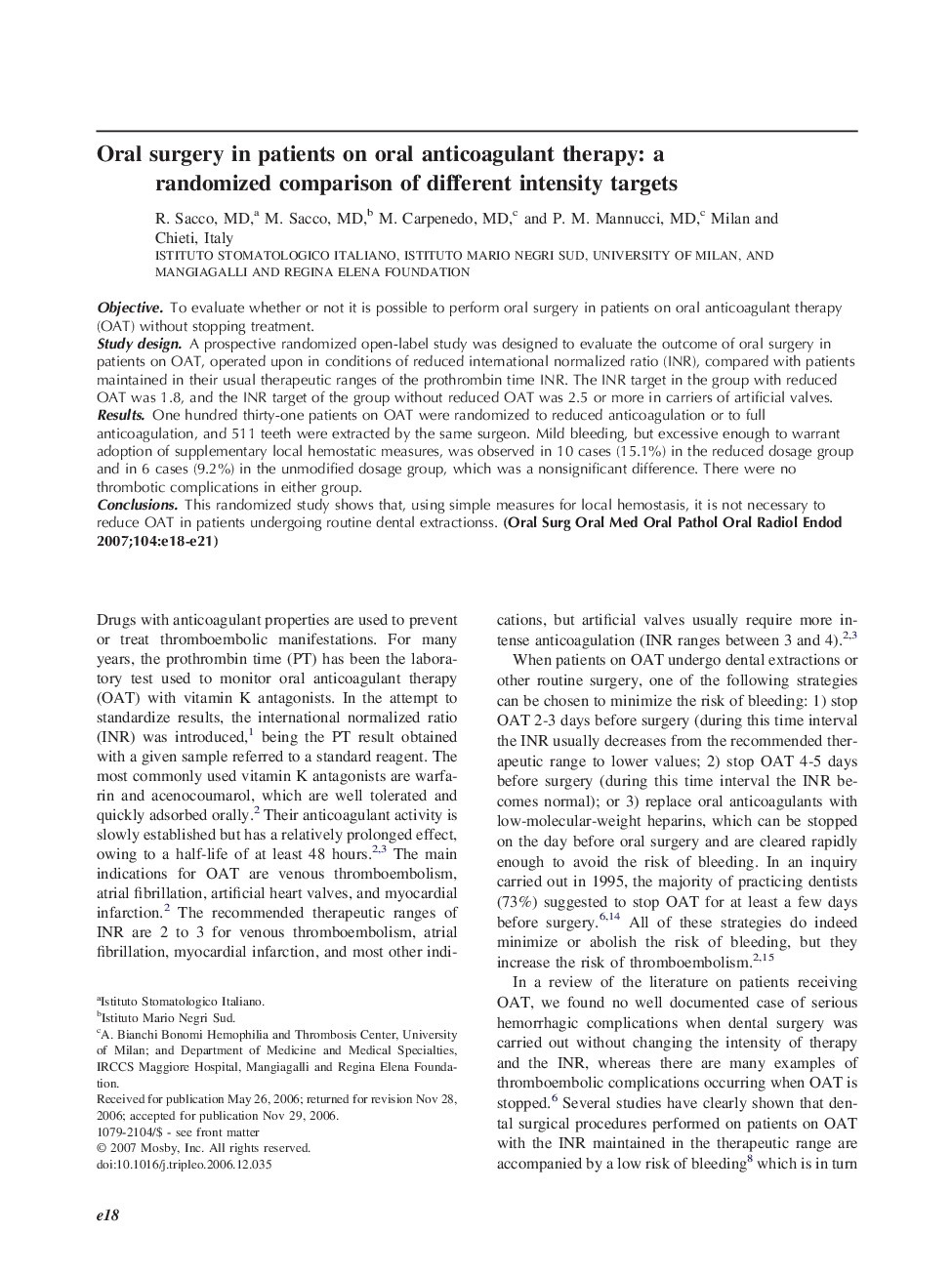| Article ID | Journal | Published Year | Pages | File Type |
|---|---|---|---|---|
| 3169160 | Oral Surgery, Oral Medicine, Oral Pathology, Oral Radiology, and Endodontology | 2007 | 4 Pages |
ObjectiveTo evaluate whether or not it is possible to perform oral surgery in patients on oral anticoagulant therapy (OAT) without stopping treatment.Study designA prospective randomized open-label study was designed to evaluate the outcome of oral surgery in patients on OAT, operated upon in conditions of reduced international normalized ratio (INR), compared with patients maintained in their usual therapeutic ranges of the prothrombin time INR. The INR target in the group with reduced OAT was 1.8, and the INR target of the group without reduced OAT was 2.5 or more in carriers of artificial valves.ResultsOne hundred thirty-one patients on OAT were randomized to reduced anticoagulation or to full anticoagulation, and 511 teeth were extracted by the same surgeon. Mild bleeding, but excessive enough to warrant adoption of supplementary local hemostatic measures, was observed in 10 cases (15.1%) in the reduced dosage group and in 6 cases (9.2%) in the unmodified dosage group, which was a nonsignificant difference. There were no thrombotic complications in either group.ConclusionsThis randomized study shows that, using simple measures for local hemostasis, it is not necessary to reduce OAT in patients undergoing routine dental extractionss.
